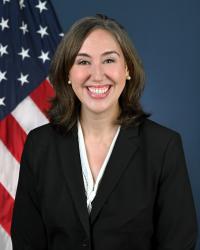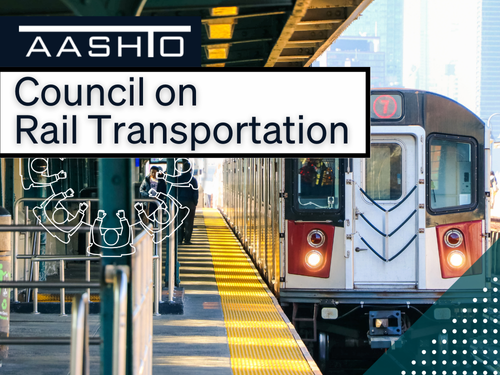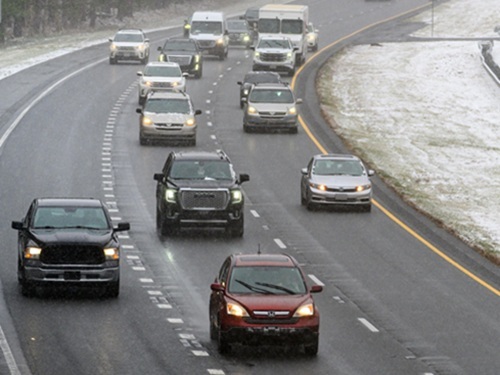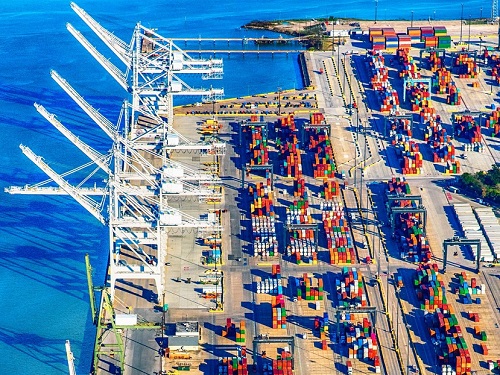As part of the inaugural meeting of the White House Council on Supply Chain Resilience, President Biden and Pete Buttigieg – secretary of the U.S. Department of Transportation – officially launched the new Office of Multimodal Freight Infrastructure and Policy, known colloquially as the USDOT’s Multimodal Freight Office.
[Above photo by USDOT]
The Multimodal Freight Office will be led by Allison Dane Camden the new USDOT deputy assistant secretary for multimodal freight infrastructure and policy.

Camden previously worked at the Washington State Department of Transportation, where she served in several roles, including overseeing the agency’s communications, media relations and government relations work as senior director of external relations.
Prior to that role, she served as WSDOT’s Deputy Assistant Secretary for Multimodal Development and Delivery, where she helped lead a team of 800 professionals in eleven divisions, Camden also spent nearly a decade on Capitol Hill, where she worked as a policy advisor to three members of Congress, including four years on the professional staff for the House of Representatives Committee on Transportation and Infrastructure.
Camden also served as the vice chair of the Transportation Policy Forum for the American Association of State Highway and Transportation Officials.
In a statement, the agency said Camden will oversee the maintenance and improvement of the nation’s freight network and supply chains. In partnership with the Bureau of Transportation Statistics, the new office will continue the advancement of USDOT’s Freight Logistics Optimization Works or FLOW program that seeks to get goods to shelves faster and cut costs for consumers.
In addition to growing the FLOW partnership, Camden’s office will oversee the development of the National Multimodal Freight Network, review State Freight Plans, and provide technical assistance to state and local governments, among other duties.
USDOT noted that its FLOW partnership now includes five of the largest U.S. container ports, seven of the largest ocean carriers, and four of the five largest retailers by imports to create a shared picture of supply chain networks and facilitate a more reliable flow of goods.
Through FLOW, the USDOT said it is able to serve as an independent steward of secure supply chain data across a largely privately-operated enterprise that spans shipping lines, ports, terminal operators, truckers, railroads, warehouses, and beneficial cargo owners.
By providing a secure, shared view of the national logistics system without compromising sensitive proprietary information – including both supply and demand assets – participants can make more informed decisions regarding their capacity and supply chain planning, the agency noted.
 Nation
Nation
Registration Open for AASHTO’s Winter Rail Meeting
December 19, 2025 Nation
Nation

